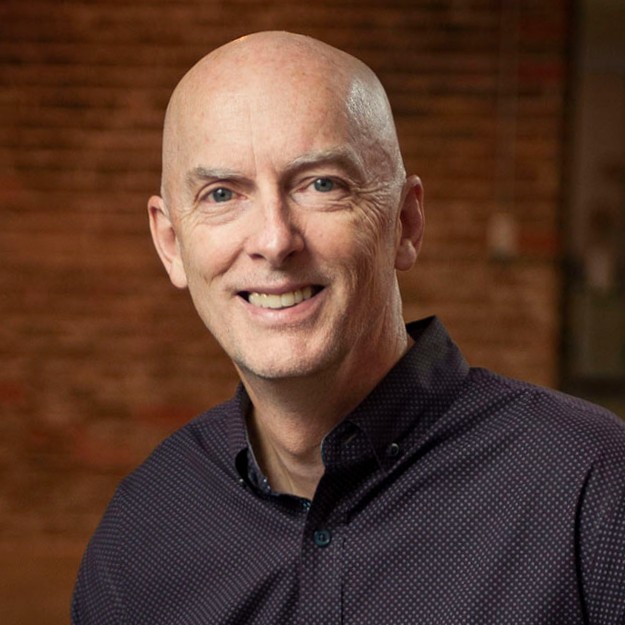When you think of your favorite brands, how do you feel? Whatever those feelings are, for successful brands, the way you feel has been fully orchestrated from the day you first encountered the brand.
For instance, for those who embrace Nike’s brand, it elicits very strong feelings. And from the brand’s culture to its designs to its marketing, those feelings are intentional. Apple elicits strong feelings. Netflix, Harley Davidson and Red Bull also elicit strong feelings. Until recently, Southwest Airlines was among that set, although now, feelings about the brand seem to be shifting. More on that in a minute.
In his marketing classic, Becoming a Category of One, author Joe Calloway gives what has become our favorite definition of branding. Calloway says, “Your brand is what people think it’s like to do business with you.” That statement isn’t grounded in product attributes and quarterly profits. It’s grounded in feeling.
How does engaging with your brand make me feel? Is your brand congruent? Do what you say and do align, and will they every time I interact with your brand? When the interaction makes me feel good, strong, proud and happy, and the brand is fully congruent, that’s how brand evangelists are born.
At their core, brands are meaning-making systems designed to reflect, signal and communicate a company’s values. That’s why brands that focus on culture win. It’s also why company culture is something that requires constant curating. Let’s jump back to Southwest Airlines.
Even Cultures Built to Last, Don’t
On January 4, 2019, the day after Southwest Airlines founder Herb Kelleher passed away, an article ran in Forbes, “20 Reasons Why Herb Kelleher Was One of the Most Beloved Leaders of Our Time.” In it, authors and leadership experts Kevin and Jackie Freiberg said this about their longtime friend:
“Herb played the game of life full throttle. One of the most passionate people we have ever known, he had a zest for life, an indefatigable spirit, a contagious sense of humor, a servant’s heart and an intellectual acumen that allowed him to carry on an interesting conversation with anyone, anywhere, about anything. For almost 30 years we’ve been asking, ‘What if you could build a company that is as human as the human beings in it? What if you could create a culture that inspires passionate people to come to work fully awake, fully engaged, firing on all cylinders because they know they are doing epic work?’ Herb did.”
Yes, Herb did. But even cultures that seem perfect can crumble when left unattended. For years, the team at Southwest could do no wrong and we loved them for it. From turning planes in record time day after day, to making flying fun again, Southwest was a cultural touchstone and one of the most beloved challenger brands of all time. But the events of the last month show there were also cracks in the culture at the top that company leaders ignored until their infrastructure was imploding along with consumers’ trust across the country.
While the long-term fallout remains to be seen, Southwest Airlines is now a cautionary tale for the leaders of every company and brand culture. Leadership isn’t a top-down edict that demands buy in. It’s an employee-first, customers-second, leaders-third mindset. The debacle at Southwest happened the week of Christmas but it started 20 years ago when a leader wholly committed to his employees and customers gave way to a CEO who focused exclusively on ROI, cutting expenses, and Wall Street. When that happens, culture becomes the sacrificial lamb for profit, and while that can certainly inflate numbers temporarily, it’s not sustainable. You can only cut your way to profitability for so long.
3 tips for building a strong brand
Building a brand your team will embrace and your customers will love in perpetuity takes time, energy and vision. It also takes the realization that brand building — just like culture building — is a constant process. When those two efforts work in strong, strategic alignment, the world sits up and takes notice. Here are three tips for how to make that happen:
1. Start with “lighthouse leadership.”
The single-most effective way to differentiate your brand is to firmly ground it in company culture and that culture has to begin with leadership. In challenger branding, we talk about brands having a “lighthouse identity” — an identify based on an authentic truth that burns so brightly even those not looking for it will see it. Lighthouse leadership is what happens when self-aware leaders have crystal clarity about who they are, where they want to take their companies and how they intend to get there. Your team doesn’t need a manager. It needs a beacon of clarity. It needs an inspired thinker. It needs a champion who can build team members up and lead them into battle with clear direction, conviction and support.
2. Embrace the greater good.
If you’re unaware of the Conscious Capitalism movement afoot across the country, read up and learn all you can. Conscious Capitalism is about embracing the idea of doing well by doing good espoused by a stakeholder model that rewards all the constituent groups involved in commerce — versus the shareholder model that squeezes everyone possible to drive all profit to the shareholders. The movement’s mission is more than simply elevating humanity through good business. It’s something that delivers results. In his book Firms of Endearment: How World-Class Companies Profit From Passion and Purpose, author Raj Sisodia (co-author of Conscious Capitalism), cites research that, from 1996 to 2011, consciously led publicly traded companies outperformed the S&P 500 by a factor of 10.5. That’s the power of positive culture.
3. Think like your customers and deliver for them without fail.
Remember the Joe Calloway quote we started with? “Your brand is what people think it’s like to do business with you.” Great brands — challengers or not — never lose sight of the customers’ perspective. Thousands of brands die on the vine every year because they never stop to ask, “What kind of experience do our customers want from us?” It’s not about faking it or trying to be something you’re not. Brand loyalty is built on authenticity as much as anything. Smart, successful, lasting brands understand they have to consistently show up in a meaningful way for their customers, not the other way around. Whatever your authentic truth, be the brand you say you are, build the culture that will support your team, and do whatever you have to do to deliver without fail. Do that, and when failure inevitably comes, it’s something you’ll most likely survive.





































